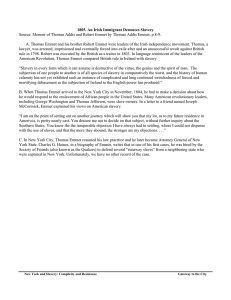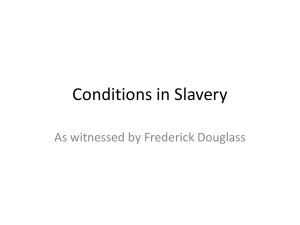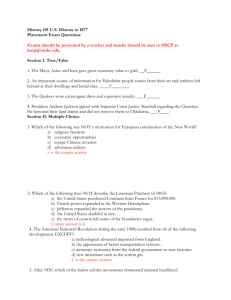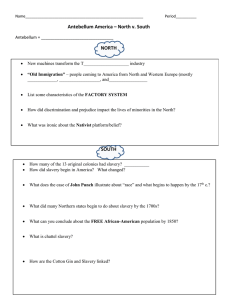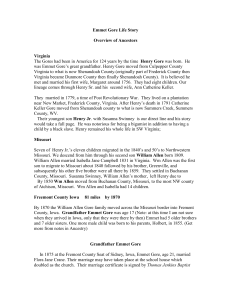AN IRISH IMMIGRANT DENOUCES SLAVERY
advertisement
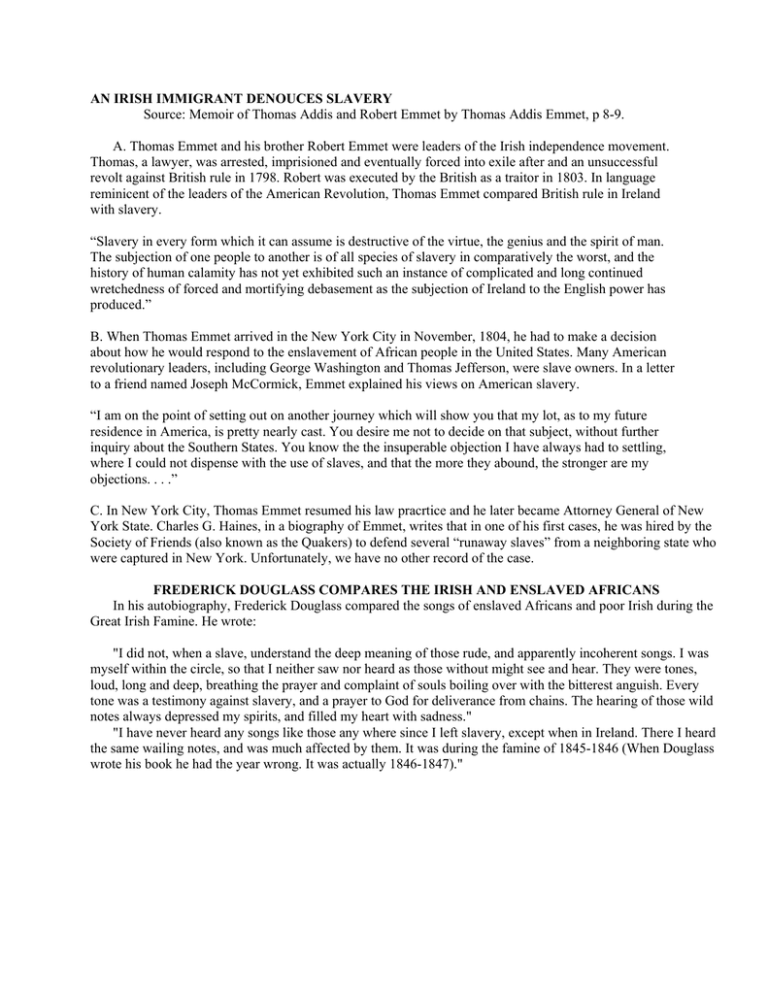
AN IRISH IMMIGRANT DENOUCES SLAVERY Source: Memoir of Thomas Addis and Robert Emmet by Thomas Addis Emmet, p 8-9. A. Thomas Emmet and his brother Robert Emmet were leaders of the Irish independence movement. Thomas, a lawyer, was arrested, imprisioned and eventually forced into exile after and an unsuccessful revolt against British rule in 1798. Robert was executed by the British as a traitor in 1803. In language reminicent of the leaders of the American Revolution, Thomas Emmet compared British rule in Ireland with slavery. “Slavery in every form which it can assume is destructive of the virtue, the genius and the spirit of man. The subjection of one people to another is of all species of slavery in comparatively the worst, and the history of human calamity has not yet exhibited such an instance of complicated and long continued wretchedness of forced and mortifying debasement as the subjection of Ireland to the English power has produced.” B. When Thomas Emmet arrived in the New York City in November, 1804, he had to make a decision about how he would respond to the enslavement of African people in the United States. Many American revolutionary leaders, including George Washington and Thomas Jefferson, were slave owners. In a letter to a friend named Joseph McCormick, Emmet explained his views on American slavery. “I am on the point of setting out on another journey which will show you that my lot, as to my future residence in America, is pretty nearly cast. You desire me not to decide on that subject, without further inquiry about the Southern States. You know the the insuperable objection I have always had to settling, where I could not dispense with the use of slaves, and that the more they abound, the stronger are my objections. . . .” C. In New York City, Thomas Emmet resumed his law pracrtice and he later became Attorney General of New York State. Charles G. Haines, in a biography of Emmet, writes that in one of his first cases, he was hired by the Society of Friends (also known as the Quakers) to defend several “runaway slaves” from a neighboring state who were captured in New York. Unfortunately, we have no other record of the case. FREDERICK DOUGLASS COMPARES THE IRISH AND ENSLAVED AFRICANS In his autobiography, Frederick Douglass compared the songs of enslaved Africans and poor Irish during the Great Irish Famine. He wrote: "I did not, when a slave, understand the deep meaning of those rude, and apparently incoherent songs. I was myself within the circle, so that I neither saw nor heard as those without might see and hear. They were tones, loud, long and deep, breathing the prayer and complaint of souls boiling over with the bitterest anguish. Every tone was a testimony against slavery, and a prayer to God for deliverance from chains. The hearing of those wild notes always depressed my spirits, and filled my heart with sadness." "I have never heard any songs like those any where since I left slavery, except when in Ireland. There I heard the same wailing notes, and was much affected by them. It was during the famine of 1845-1846 (When Douglass wrote his book he had the year wrong. It was actually 1846-1847)."
